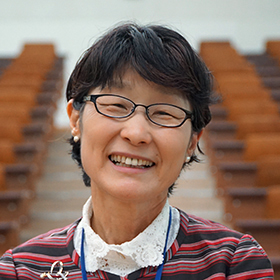The theme of the sixth lecture of the Global Carrier Lecture Series was “the environment and international cooperation.” All 12th graders attended the class and listened to the speech of Dr. Kazuyo Ichimori, who was a former senior specialist at the World Health Organization (WHO), Geneva. Around the world she has been making efforts to eliminate neglected tropical diseases (NTDs), especially lymphatic filariasis, on which she is an expert.
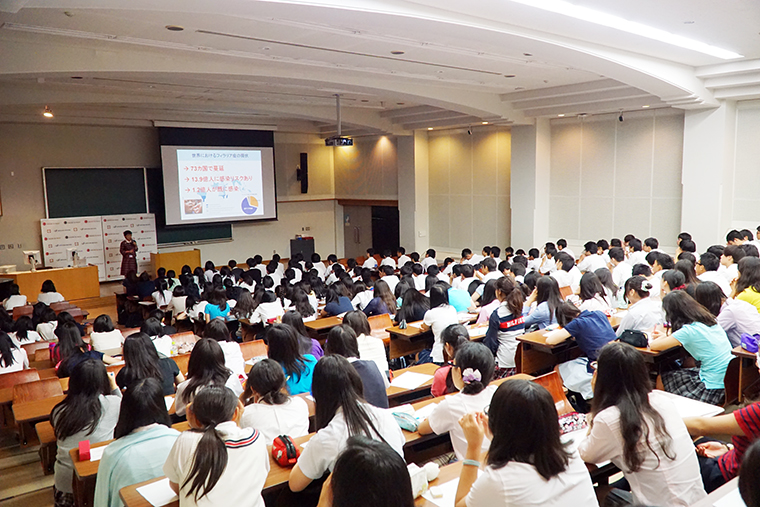
After introduced by the student facilitating the class, Dr. Ichimori appeared on the platform and began the lecture, saying “This lecture title is ‘Fight Against Neglected Tropical Diseases.’ I’m going to talk about mosquitoes and diseases transmitted by them.”
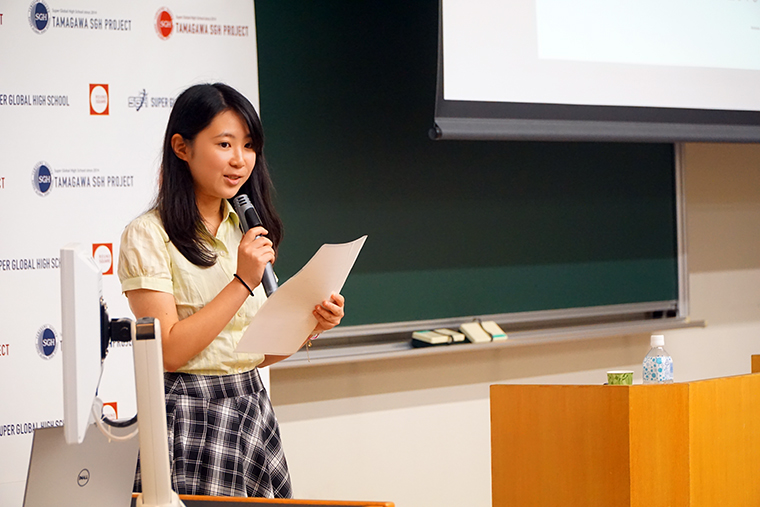
“Have you heard of the NTDs?” Dr. Ichimori asked the students and explained that internationalization and global warming were major causes of the transmission, citing dengue cases last year in Japan. She said, “Even though we say ‘tropical diseases,’ it can happen to us.” “The keywords are the globe, the world, human society, poverty and human rights. I’d be pleased if my speech lead you to think about them.”
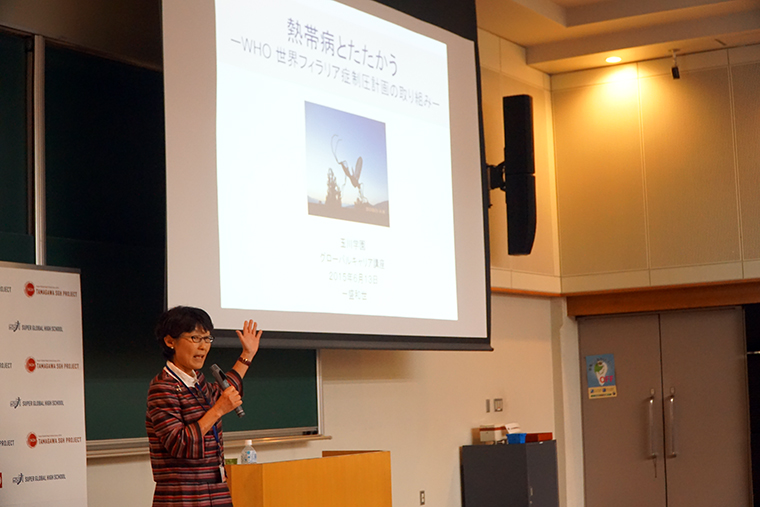
Then, Dr. Ichimori introduced herself as talking about countries where she was dispatched, saying “I had lived overseas for 30 years,” and about the episode that she chose the job because she had seen shocking pictures in the university laboratory. “There’s nothing more terrible. We can definitely remove it,” with that thought, she has been engaging in the activities aiming for the elimination of lymphatic filariasis all over the world.
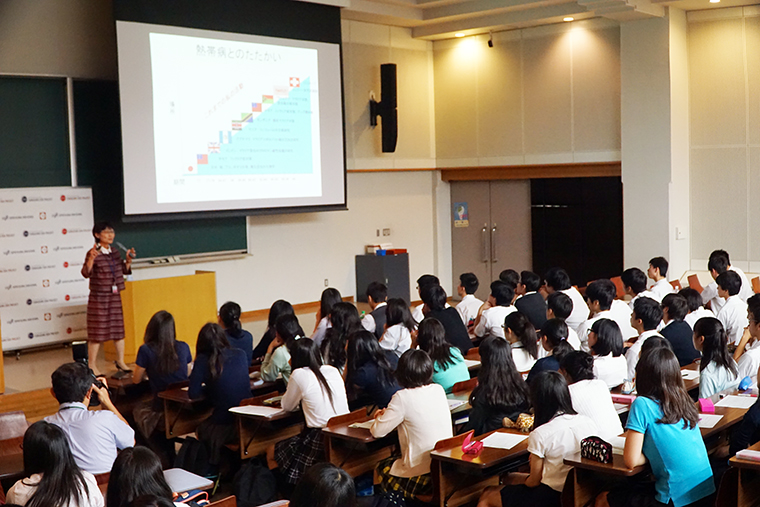
“Today you’ll see shocking pictures and be astonished. This is reality.” As facing those facts, Dr. Ichimori had been working as the person in charge of the activities to eliminate lymphatic filariasis that the WHO was appealing to the world.
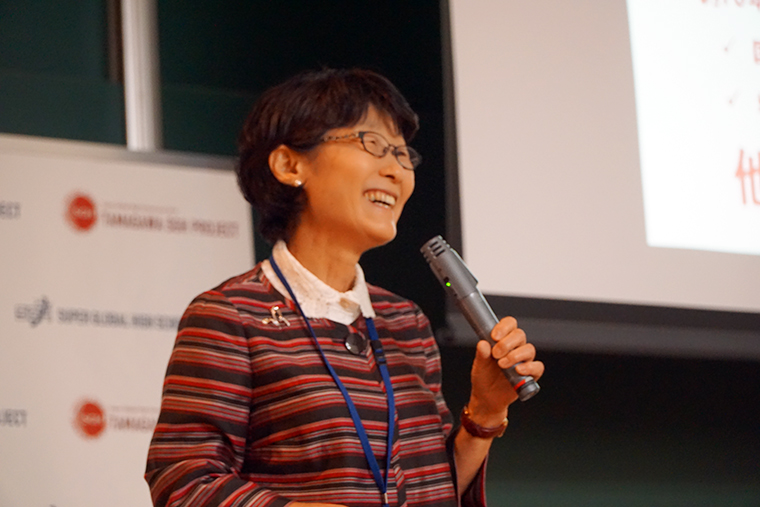
The WHO’s goals are to save the health of people around the world, and furthermore to correct disparities like poverty. Dr. Ichimori said that its perspective was to see the world like observing the earth from space. Also, she clearly described that the current earth was an “unequal planet” that had huge disparities, and to eliminate NTDs was an approach to bridge the gaps.
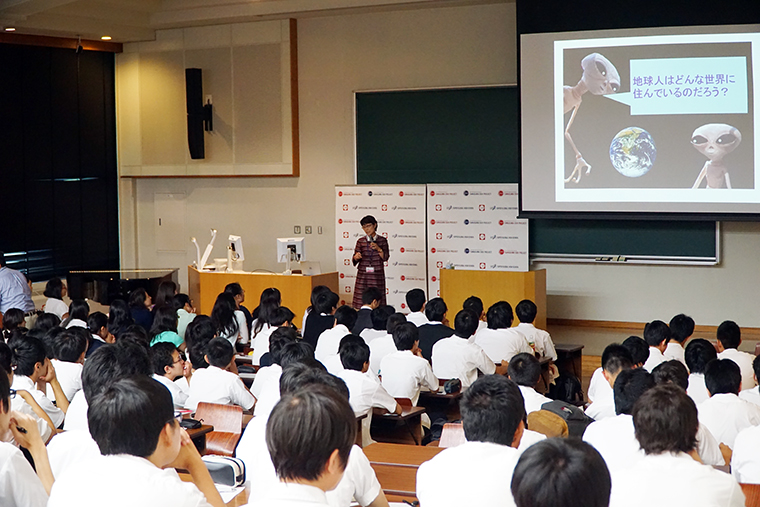
Then, Dr. Ichimori’s speech went into the main topic “NTDs.” She showed painful pictures of the NTDs’ symptoms as “the astonishing reality.” There was no exaggeration and touch-up, but was just a harsh reality that people affected with lymphatic filariasis were facing.
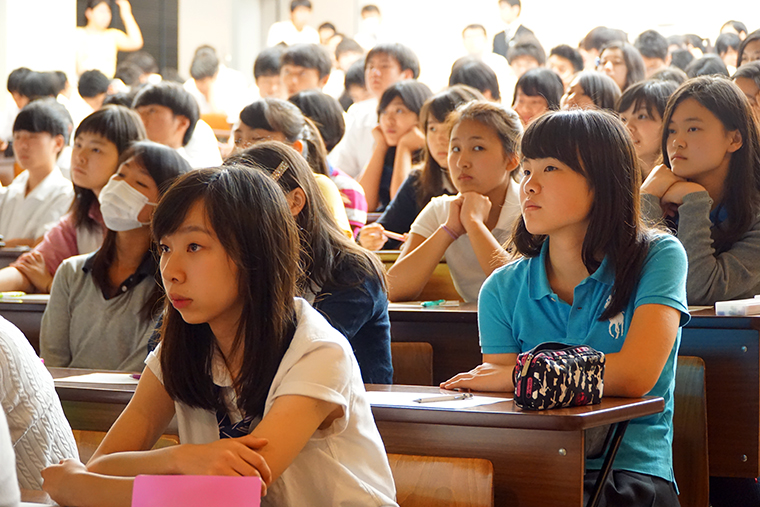
“A Vanuatuan man’s legs changed like this, and he was abused by villagers because they thought he was cursed. But they, including him, understood that he just had a disease, and they tried nursing him. So, affected people can be often saved just by knowing,” said Dr. Ichimori.
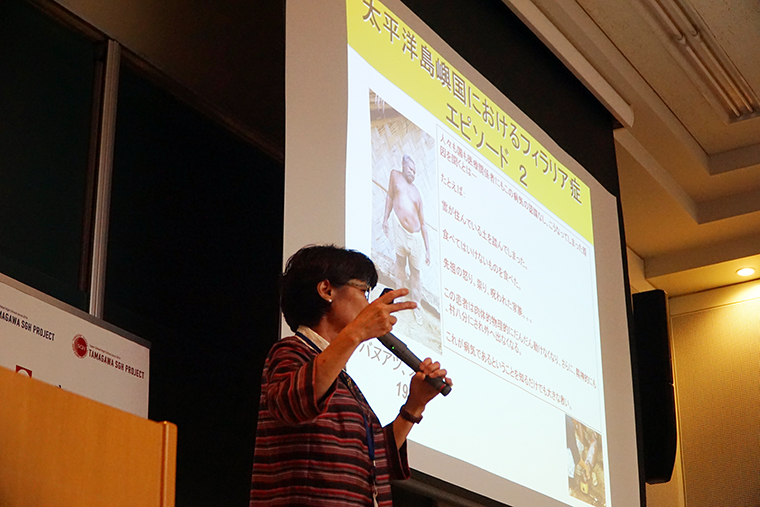
A Kiribatian man who had been a teacher had leg problems with lymphatic filariasis, and depended on others’ care for living. Therefore, when the WHO asked him whether it could use his pictures for the campaign against lymphatic filariasis, he welcomed the offer because he felt glad to be of help to others. Then, Dr. Ichimori realized, “‘To be of help to someone’ is also one of fundamental human rights.”
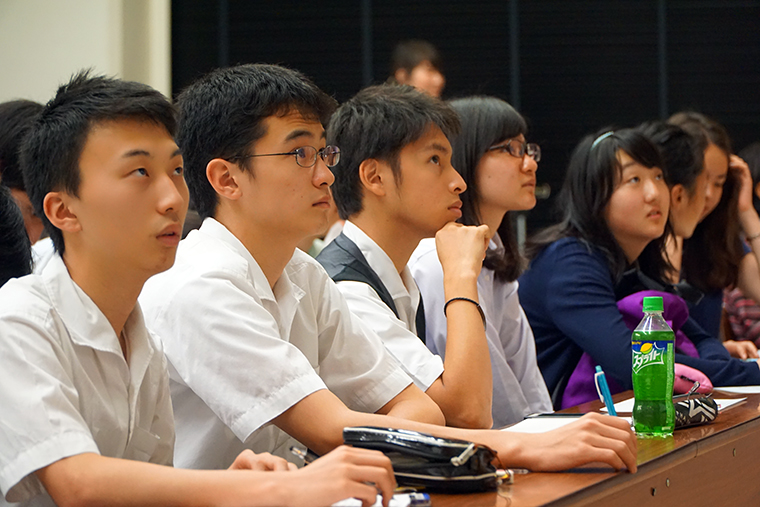
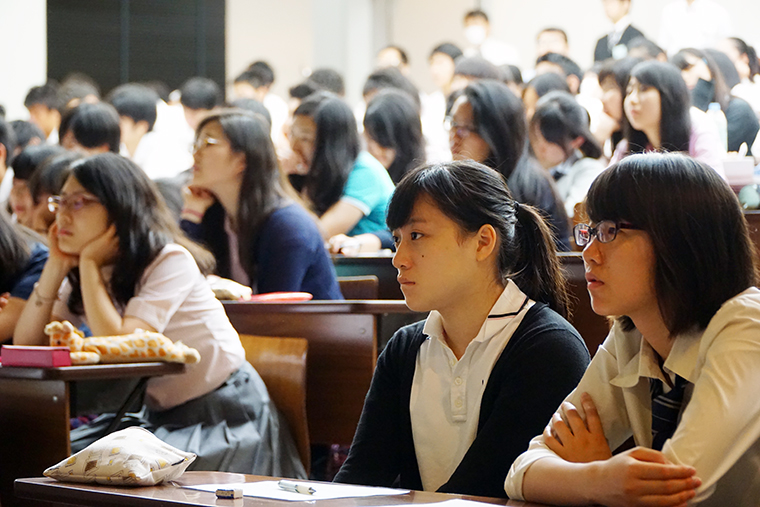
All 194 member countries of the World Health Assembly agreed on “the elimination of lymphatic filariasis by 2020.” In response to it, the WHO started “Global Programme to Eliminate Lymphatic Filariasis” in 2000, and one billion people in 60 countries are certainly getting good results with medicine and other supports.
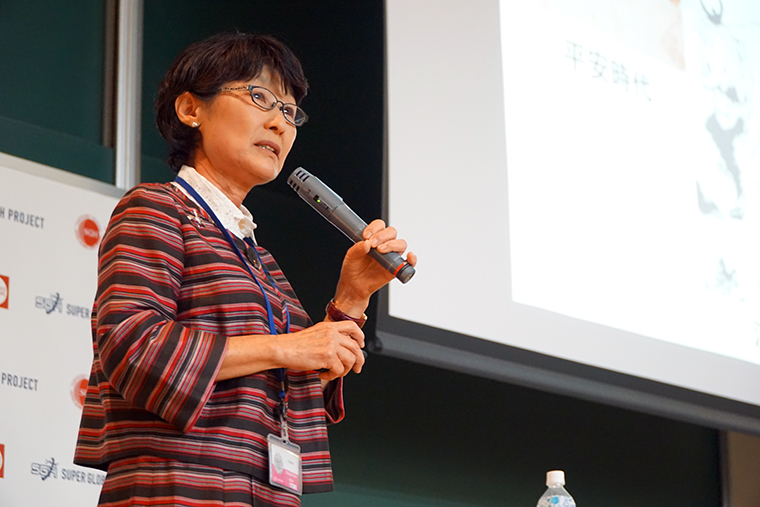
However, there are still disparities of the treatment around the world like Africa that can hardly approach it due to the problem of poverty. Dr. Ichimori said that she expected the students to close the gaps and just to do it because they had known the obvious way to eliminate the disease. Her powerful statement, “We promise to free the world from filariasis,” made a deep impression on them.
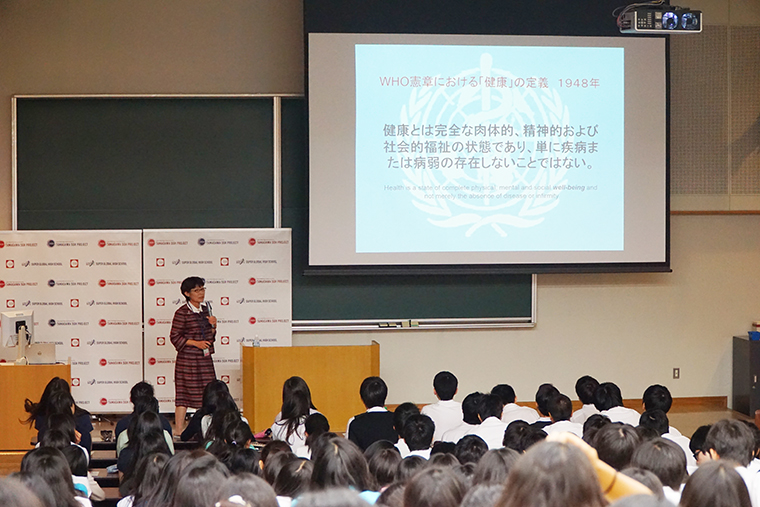
At the end of the lecture, Dr. Ichimori explained what quality and abilities were required to work for the WHO, and then gave the message, “For those who work on the global stage, the important thing is not their nationality and race, but their personality. I hope that you get to know yourself with a dream for the world, and keep improving yourself.”
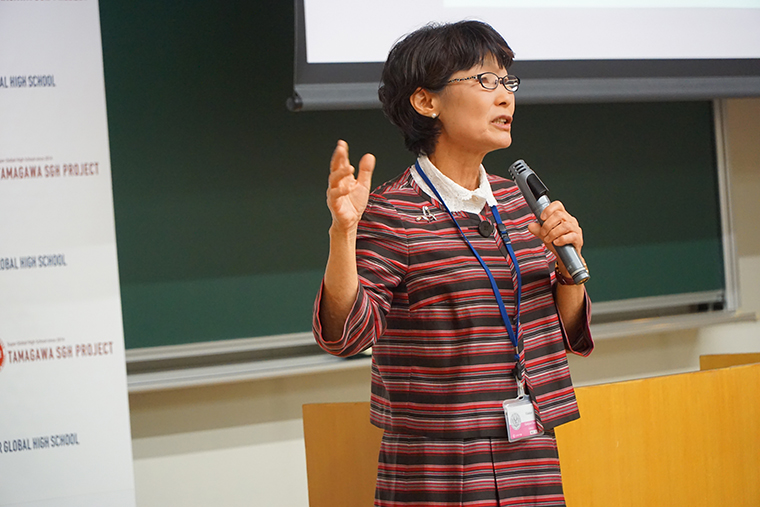
When every earthperson focuses on the same goal and fully plays their own role, the world will definitely change. To achieve this, we should develop our personality above all—from Dr. Ichimori’s speech, the students derived “the wisdom and power” to imagine the world’s future with a wider perspective than before.




